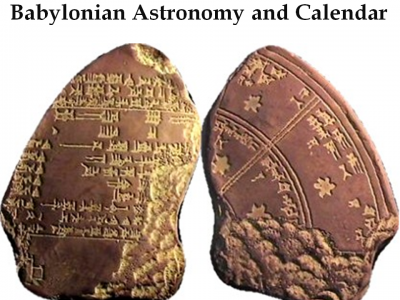
This guide will address the functions of the Babylonian calendar as well as its contributions to society.
Thesis Statement:
The Babylonian calendar has paved the way for future time keeping and time management as well as influencing surrounding civilizations.
Research Questions:
Calendars have been around for over a millennia, and are still being used to this day. Ever since the calendar’s creation, it has significantly impacted the way society manages and keeps track of time. Since the creation of the Babylonian calendar, which was the first calendar to be used by ancient civilizations, a new era of religion and agriculture has arisen. Throughout this research paper, investigations on the ways in which the Babylonian calendar has impacted civilization and improved the methods of timekeeping and planning, as well as the lasting impacts seen in calendars today will be discussed. The methodology used was a broad search of the SVC databases as well as google. The results of my research concluded that the Babylonians did in fact impact several ancient civilizations and significantly improved planning for planting and harvesting crops as well as establishing specific dates for religious events. Impacts of the Babylonian calendar can even be seen in some modern calendars, such as the Hebrew calendar, etc. However, there is little research done to show how astrologers in ancient Babylonia even concluded that the moon and stars can be used to track time. More research should be done on the creation of the calendar itself rather than its impacts on Babylonia and surrounding civilizations.
Introduction and Background:
Calendars have been a part of society ever since its creation more than 2,500 years ago in 500 BC. The Babylonians were the first among civilizations to use the calendar. The Babylonians used a lunar calendar, based on the phases of the moon and stars. The Babylonian year consisted of 12 lunar months, each starting in the evening of a new crescent moon. The year began around the spring equinox, and in order to keep the calendar in line with the seasons, an extra month, called an intercalary month, would be inserted at semi-regular intervals.

This is an image of a Babylonian calendar. The calendar was written on clay tablets, which kept track of the days and moon phases. Because the Babylonian calendar was lunar based, they relied entirely on the phases of the moon.
Source Citation:
Memon, Tasmi. “Babylonian Astronomy and Calendar.” Edge Of Space, Edge Of Space, 17 Apr. 2021, edgeofspace.in/babylonian-astronomy-and- calendar/.
Cradles of Civilization - The Lunar/Solar Calendar l Lessons of Dr. David Neiman
This video gives a little more in depth discussion about the Babylonian calendar and how it worked, such as when a new month started and how the Babylonians included the intercalary month.
Source Citation:
Neiman, David. 2010 Cradles of Civilization - The Lunar/Solar Calendar I Lessons of Dr. David Neiman, YouTube. Accessed 19 February 2024
| All Content CC-BY. |